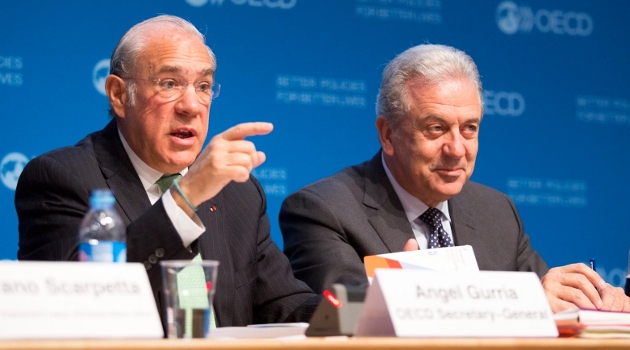Originally published by The Washington Examiner on April 7, 2018.
For years, European tax collectors have been targeting American firms. Recently, EU commissioners unveiled a proposal aimed at siphoning billions of dollars from American tech companies by targeting gross revenues instead of profits. Even worse, they wrote the rules in such a way as to ensure that only American companies, and not any European tech firms, would be affected.
Unfortunately, it’s going to get even worse. The G20 and the Organization for Economic Cooperation and Development, or OECD, are gearing up to tackle “digitalization.” Their overriding concern is finding a way for high-tax nations to get their pound of flesh from the growing digital economy.
These developments are bad enough, but it’s necessary to understand that this is merely a new battleground in a war that has been waged for decades, primarily through the work of the OECD.
The OECD was created to improve trade and promote economic progress, but today it prioritizes the interests of tax collectors above taxpayers and consumers. Its recent actions have focused on increasing tax collections at any cost.
Since the OECD is dominated by high-tax European nations, their work is often aimed at punishing U.S. companies. The so-called Base Erosion and Profit Shifting, or BEPS, project, for instance, was presented as ensuring “fair” taxes on multinational corporations, but in truth sought to raid U.S. companies with large overseas cash holdings — maintained due to perverse incentives in the old U.S. tax code — to close their own fiscal gaps.
Capital is mobile, and taxpayers can “shop around” for jurisdictions with more favorable rates. This process is known as tax competition, and it makes it harder for politicians to impose excessive tax rates.
The high-tax European nations that dominate the OECD’s agenda worry that tax competition leads to a “race to the bottom,” but it’s a baseless fear. Taxes are just one of many factors that determine a jurisdiction’s attractiveness. Quality of services and regulatory efficiency are also important, and taxpayers are willing to accept a reasonable cost for their provision.
Nevertheless, “race to the bottom” rhetoric was quickly deployed following passage of tax reform in the U.S. After Congress merely brought corporate tax rates down to a level about even with the OECD average, International Monetary Fund head Christine Lagarde said, “What is of concern is the beginning of a race to the bottom, where many other policy makers around the world are saying: ‘Well, if you’re going to cut tax and you’re going to have sweet deals with your corporates, I’m going to do the same thing.’”
International tax collectors, in other words, fear that the response to the recent tax reform might mirror what happened in the 1980s and 1990s, when competition forced even tax-happy nations to significantly lower their corporate rates. This process was good for workers, consumers, and the global economy, but politicians viewed tax competition as a negative. BEPS targets businesses, but the OECD also frequently urges higher taxes on individuals. In their annual economic reports, it routinely calls for the U.S. to raise taxes on Americans and increase government spending. This is the opposite of what our economy needs.
There are ways for the U.S. to fight back. President Trump could order career bureaucrats at the Treasury Department who represent the U.S. abroad to finally stand up for taxpayers. Instead of going along with the initiatives of European tax collectors, the U.S. should say that enough is enough.
Congress also has the option of denying funds to the OECD. The U.S. is its single largest contributor, and it is truly perverse that American taxpayers are subsidizing the work of an agency that aims to make them worse off.
If our leaders choose not to do any of these things, they should expect more attacks on U.S. economic interests. Taxpayers may soon find that many of the benefits achieved from a tax reform effort that was decades in the making can be quickly snatched away by foreign tax collectors and the undemocratic international organizations that they control.

